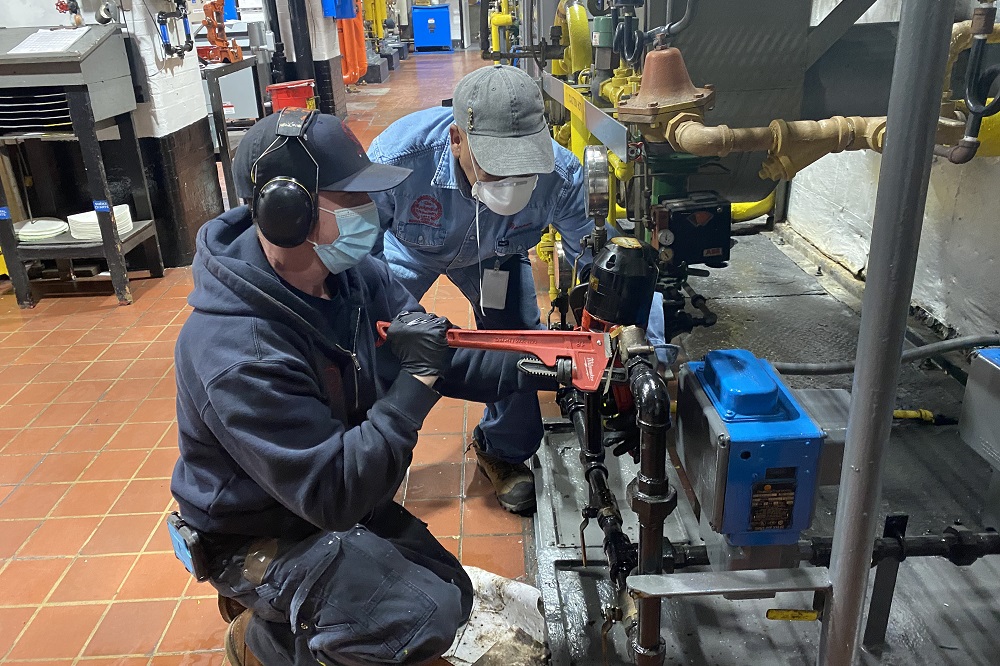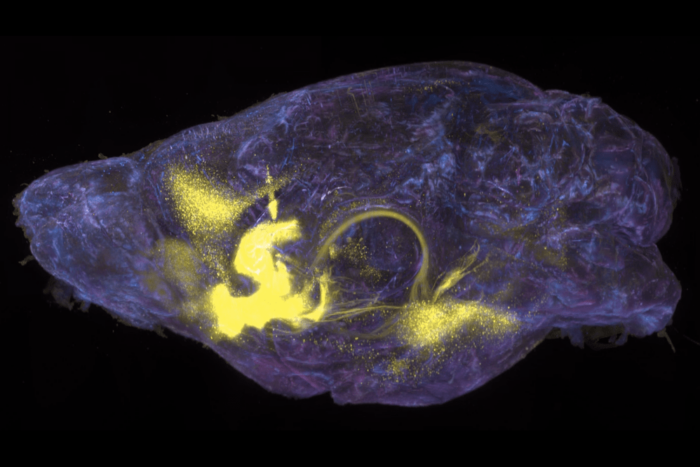How Plant Operations maintained essential university functions during shutdown

Plant Operations employees remained on call to respond to emergencies and make repairs throughout the closure. Here, Chris Harper and Richard Rafferty repair piping that feeds a boiler fuel pump.
For the men and women of Plant Operations, there really was no university closure. Even as most of the university’s 75 labs shut down, keeping those that were still semi-operational—the 26 that were conducting research on COVID-19—required support. And in housing, where over 750 apartments are occupied by scientists and students still self-quarantined, there were deliveries to manage, repairs to make, and public areas to sanitize.
Rockefeller’s Plant Operations and Housing departments have been instrumental in keeping the wheels turning. While so much of New York grinded to a halt, they’ve been handling everything from running the campus’s heating and cooling systems, to repairing laboratory equipment, to ensuring the safety of those under stay-at-home-orders in university apartments.
“Though Rockefeller suspended all non-essential operations on March 18, there has still been a tremendous amount of ‘essential’ work to be done,” says Alex Kogan, associate vice president of plant operations. His team of 80 employees—a reduction of about 25 percent from regular staffing levels, were provided with appropriate personal protective equipment and have been working in socially distanced shifts. Kogan himself, who lives in New Jersey, moved into a guest room in Scholars Residence to be available 24 hours a day. The housing department also provided guest accommodations to over 20 essential employees from the Comparative Bioscience Center, security, and plant operations to minimize travel during the shutdown.
The tasks are numerous. In the powerhouse, six boilers and 5 chillers need round-the-clock supervision from watch engineers, who by law must remain on the premises whenever they are lit—which is always. A team of mechanics is always available to check on equipment, respond to emergencies, and conduct routine maintenance.
Rockefeller’s plumbers, HVAC mechanics, carpenters, electricians, painters, and custodians are also working on rotating schedules. They remove trash, restock bathrooms, and respond to a wide range of issues, from clogged sinks to broken freezers, among other duties. In an effort to take advantage of the decreased campus population and ease of scheduling, these crews have also taken on tasks like buffing floors and shampooing carpets. They have also gone room-to-room opening sink faucets and running emergency showers and eye wash stations, to ensure that their disuse doesn’t lead to the growth of bacteria such as Legionella.
In university housing, approximately 40 staff consisting of door attendants, porters, and custodians have implemented new policies for socially distanced deliveries and service calls to minimize unnecessary contact between residents and staff. Additionally, special attention has been given to sanitizing surfaces on an increased basis.
“We are incredibly fortunate to have such a skilled and committed group of people maintaining our facilities,” says Timothy P. O’Connor, the university’s executive vice president. “Their smooth adaptation to difficult and evolving conditions has allowed us to provide safe conditions for our community and indispensable support for the ongoing science.”


